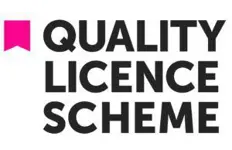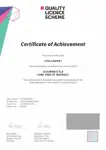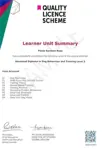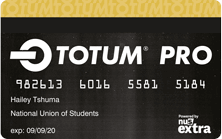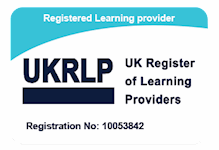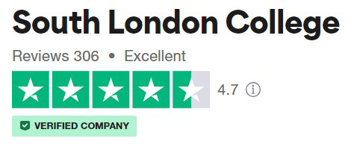
Chemistry : Basic Chemistry
Level 3 Diploma | Endorsed by Quality License Scheme | QLS Endorsed Certificate Included
South London College
Summary
- Certificate of completion - Free
- Diploma in Basic Chemistry at QLS Level 3 - Free
- Exam(s) / assessment(s) is included in price
Add to basket or enquire
Overview
Diploma in Basic Chemistry - Level 3
Looking for the perfect foundation to further your studies or career aspirations in chemistry? Then this Diploma in Basic Chemistry – Level 3 is all the certification you need to bring your goals to life. This Basic Chemistry course will extensively cover the basics of chemistry to help you easily grasp the more advanced aspects of it in future. Since chemistry is a part of our daily lives, this Basic Chemistry course is also ideal if you wish to study more about the environment around you.
This insightful course will relay the fundamentals of basic chemistry such as sub disciples, chemical compounds and molecules. You will get to discover about energy, reaction, acidity, basicity and alkalinity, followed by lectures on the principles of modern chemistry, substances versus mixtures, Phase and bonding. This Basic Chemistry course will also discuss about PH, its definition and calculations to identify chemicals using them.
Chemistry mainly focuses on the chemicals and chemical reactions around us. Therefore, this Basic Chemistry course has dedicated a few modules that will educate you on the types of chemicals, main group elements and Lanthanides. This Basic Chemistry course also considers your health and safety while handling chemicals, which is why the course curriculum will walk you through the laboratory safety practices and methods and the Chemical Hygiene Plan (CHP).
The Basic Chemistry course has been endorsed under the Quality Licence Scheme. The completion of this Basic Chemistry course alone does not lead to a regulated qualification* but may be used as evidence of knowledge and skills gained. The Learner Unit Summary may be used as evidence towards Recognition of Prior Learning if you wish to progress your studies in this subject. To this end the learning outcomes of the Basic Chemistry course have been benchmarked at Level 3 against level descriptors published by Ofqual, to indicate the depth of study and level of demand/complexity involved in successful completion by the learner.
The Basic Chemistry course itself has been designed by Imperial Learning Limited* to meet specific learners’ and/or employers’ requirements which cannot be satisfied through current regulated qualifications.
The Quality Licence Scheme endorsement involves robust and rigorous quality audits by external auditors to ensure quality is continually met. A review of courses is carried out as part of the endorsement process.
Please Note: This Course is Based on USA Standards
Eligible for TOTUM card - TOTUM is the #1 student discount card and app giving you access to exclusive student deals on food and fashion, tech and travel and everything in between.
*Regulated qualification refers to those qualifications that are regulated by Ofqual / CCEA / Qualification Wales
Achievement
Course media
Description
What Will I Learn?
- Learn the fundamentals of Basic Chemistry by learning about sub disciplines, chemical compounds and molecules.
- Gain insight into principles of modern Chemistry, substances versus mixtures, Phase and bonding.
- Understand about energy, reaction, acidity, basicity and Alkalinity.
- Learn about pH definition, measurement and calculations of pH.
- Understand about strong acids, bases and hard water.
- Learn about main group elements and Lanthanides.
- Learn about laboratory Safety practices and methods.
- Understand what Chemical Hygiene Plan (CHP) is.
COURSE CURRICULUM : Diploma in Basic Chemistry - Level 3
★ MODULE 01 ★ Introduction To Basic Chemistry
- Introduction to Basic Chemistry
- Question 1 Assignment Starts Here
★ MODULE 02 ★ Chemistry Sub Disciplines
- Chemistry Subdisciplines
★ MODULE 03 ★ Commonly Found Chemical Types
- Commonly found Chemical Types Question 14
★ MODULE 04 ★ Principles Of Modern Chemistry
- Principles of Modern Chemistry
- Matter
- Basic Chemical Structure
- What is a Compound?
★ MODULE 05 ★ Chemical Compounds
- Chemical Compounds
- Common Water Treatment Chemicals
★ MODULE 06 ★ Substances Versus Mixtures
- Substances Versus Mixtures
- Chemicals Versus Chemical Substances Question 44
- Naming and Indexing
★ MODULE 07 ★ Understanding The Atom
- Understanding the Atom Question 30
- Element
★ MODULE 08 ★ Molecule Section
- Molecule Section
- Substance and Mixture Question 62
- Mole and Amount of Substance
★ MODULE 09 ★ Phase
- Phase
★ MODULE 10 ★ Bonding
- Bonding
- Sodium Chloride
- Crystal Lattice Of NaCI (Table Salt)
- Methane Molecule (CH4)
- Bromine
- Chlorine
★ MODULE 11 ★ Energy
- Energy
- Spectroscopy
★ MODULE 12 ★ Reaction
- Reaction
- Ions and Salts
★ MODULE 13 ★ Acidity And Basicity
- Acidity and Basicity
- Question 87
- Redox
- Equilibrium
★ MODULE 14 ★ Ph Section
- Ph Section
- Contents
- History
- Alkalinity
★ MODULE 15 ★ Ph Definition And Measurement
- Ph Section
- Contents
- History
- Alkalinity
★ MODULE 16 ★ Calculations Of Ph
- Ph Definition and Measurement
- Ph Indicators
- POH
- Extremes of Ph
- Non-aqueous Solutions
- Applications
- Seawater
★ MODULE 17 ★ Strong Acids And Bases
- Strong Acids and Bases
- Weak Acids and Bases
★ MODULE 18 ★ Alkalinity Section
- Alkalinity Section
- Introduction Question 106
- Titration Method
- Alkalinity to Phenolphthalein
- Caustic Alkalinity a. General
★ MODULE 19 ★ Alkalinity
- Alkalinity (Total)
- Hardness (calcium)
★ MODULE 20 ★ Hard Water Section
- Hard Water Section
- Distillers
- Occurrence of Hard Water
- Expressing Water Hardness Concentration
- Types of Water Hardness
- Objections to Hard Water
- Scale Formation
- Effect on Soap
★ MODULE 21 ★ Inorganic Chemical Section
- Inorganic Chemical Section
- Question 124
- What are Inorganic Compounds?
- Drinking Water Standards
- Inorganic Chemistry
- Subdivisions of Inorganic Chemistry
- Industrial Inorganic Chemistry
- Descriptive Inorganic Chemistry
- Coordination Compounds
- Main Group Compounds
- Transition Metal Compounds
- Organometallic Compounds Question 149
- Cluster Compounds
- Bioinorganic Compounds
- Solid State Compounds
- Theoretical Inorganic Chemistry
★ MODULE 22 ★ Main Group Elements And Lanthanides
- Main Group Elements and Lanthanides
- Transition Metal Complexes
- Redox Reactions
- Reactions at Ligands
- Inorganic Compound Characterization
- Commonly encountered techniques are:
- Synthetic Inorganic Chemistry
- Qualitative Theories
- Molecular Symmetry Group Theory
- Thermodynamics and Inorganic Chemistry
- Mechanistic Inorganic Chemistry
★ MODULE 23 ★ Laboratory Safety Section
- Laboratory Safety Section
- Training
- Hazardous chemical:
- Health Hazard:
- Employee:
- Common Chemistry Glassware
- Employees' Right to Know
- Permissible Exposure Limits and Exposure Determination
- Safety Precautions
★ MODULE 24 ★ The Chemical Hygiene Plan
- The Chemical Hygiene Plan (CHP)
- Any CHP must include:
- Personal Protective Equipment
- Lab Equipment
- Autoclaves and other heating equipment:
- Electrical equipment creates electric shock hazard:
- Centrifuges and other equipment with moving parts can catch or open suddenly:
- Fire and Burn Hazards
- Guidelines for safe work practices:
- Emergency Preparedness
- Summary
Access Duration
The Basic Chemistry course will be directly delivered to you, and you have 12 months access to the online learning platform from the date you joined the course. The Basic Chemistry course is self-paced and you can complete it in stages, revisiting the lectures at any time.
Method of Assessment
In order to complete the Diploma in Basic Chemistry at QLS Level 3 successfully, all students are required to complete a series of assignments. The completed assignments must be submitted via the online portal. Your instructor will review and evaluate your work and provide your feedback based on how well you have completed your assignments.
Certification
Those who successfully complete the Basic Chemistry course will be issued the Diploma in Basic Chemistry at QLS Level 3 by the Quality Licence Scheme.
Course Code: QLS-04867
Awarding body (Accreditation)
The Quality Licence Scheme is part of the Skills and Education Group, a charitable organisation that unites education and skills-orientated organisations that share similar values and objectives. With more than 100 years of collective experience, the Skills and Education Group’s strategic partnerships create opportunities to inform, influence and represent the wider education and skills sector.
The Skills and Education Group also includes two nationally recognised awarding organisations; Skills and Education Group Awards and Skills and Education Group Access. Through our awarding organisations we have developed a reputation for providing high-quality qualifications and assessments for the education and skills sector. We are committed to helping employers, organisations and learners cultivate the relevant skills for learning, skills for employment, and skills for life.
Our knowledge and experience of working within the awarding sector enables us to work with training providers, through the Quality Licence Scheme, to help them develop high-quality courses and/or training programmes for the non-regulated market.
Who is this course for?
- Students
- Job seekers
- Chemists
- Forensic Scientists
- Anyone interested in learning about basic chemistry
Requirements
- Learners should be age 19 or over, and must have a basic understanding of Maths, English, and ICT.
- A qualification at level 2 or above in any discipline.
Career path
- Chemist - £24,928 per annum
- Research Chemist - £29,087 per annum
- Forensic Scientist - £26,832 per annum
- Chemical Engineer - £32,324 per annum
Questions and answers
I want to do this course so could you tell me exactly what you mean by level two on the entry requirements? Is the level two on here?
Answer:Dear Julie Thank you very much for your query. That is the standard requirement (a recognized qualification at level 2 or above in any discipline) to do this level 3 courses. However you can enroll if you are above 19 and have basic knowledge in English & ICT. Regards, Student Support Team.
This was helpful.Do i need to allready know how to bake to take this course?
Answer:Dear Karlie Thank you very much for your query. This course is specially designed for Cake Decorators and Bakers, Anyone who wants to learn cake decorating skills and Individuals wanting to establish their own cake decorating business. Regards, Student Support Team.
This was helpful.
Certificates
Certificate of completion
Digital certificate - Included
Diploma in Basic Chemistry at QLS Level 3
Digital certificate - Included
Those who successfully complete the course will be issued the Diploma in Basic Chemistry at QLS Level 3 by the Quality Licence Scheme.
Reviews
Currently there are no reviews for this course. Be the first to leave a review.
Legal information
This course is advertised on reed.co.uk by the Course Provider, whose terms and conditions apply. Purchases are made directly from the Course Provider, and as such, content and materials are supplied by the Course Provider directly. Reed is acting as agent and not reseller in relation to this course. Reed's only responsibility is to facilitate your payment for the course. It is your responsibility to review and agree to the Course Provider's terms and conditions and satisfy yourself as to the suitability of the course you intend to purchase. Reed will not have any responsibility for the content of the course and/or associated materials.

